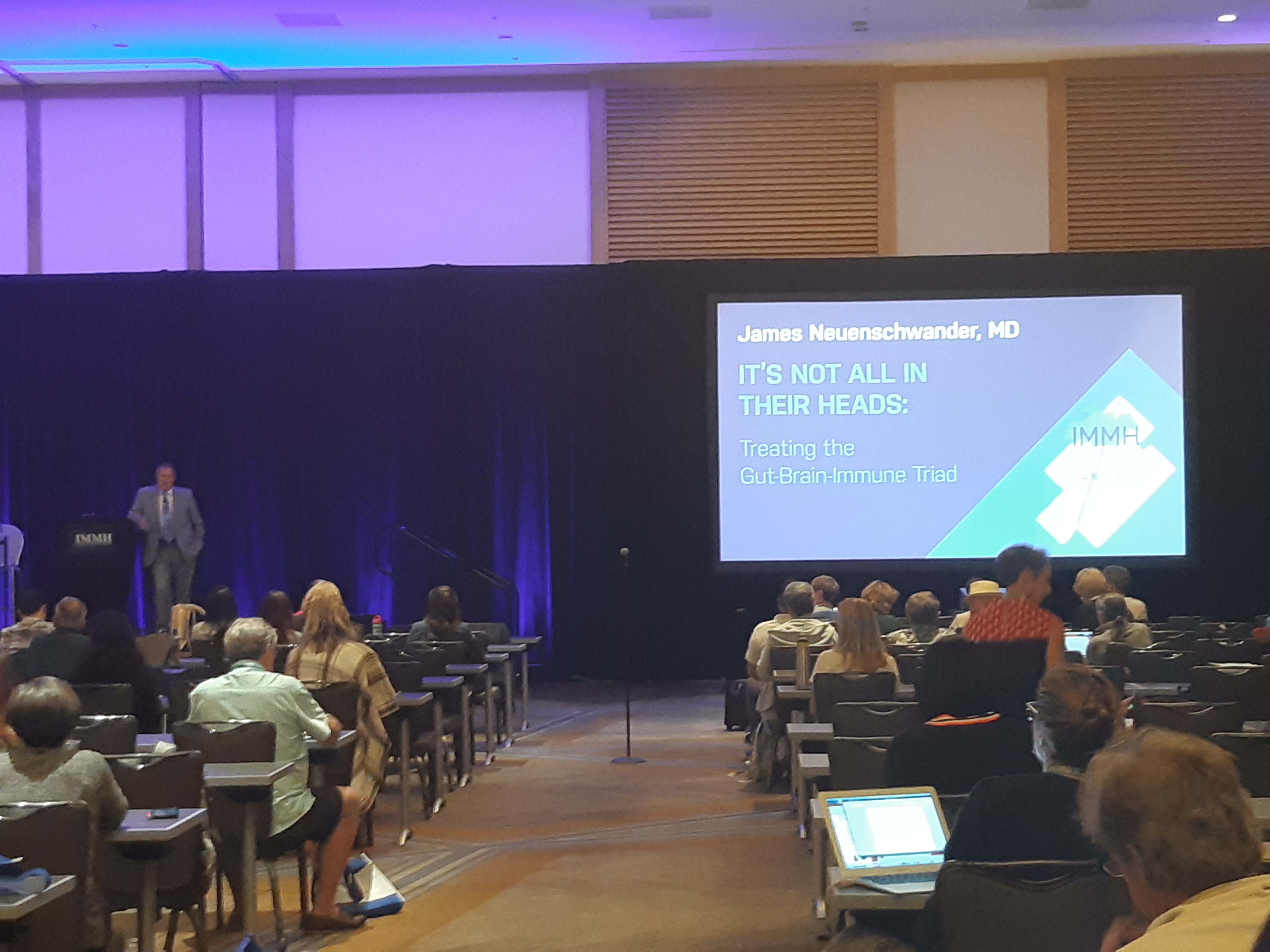New Insights On The Impact Of Cholesterol

This summer I travelled across the continent to the Integrative Medicine For Mental Health conference. I went with an keen eye out for what I could distil down and bring back to busy parents so they could better help their kids feel and function their best.
And it didn't disappoint! I've got loads to share so you can move your family forward...
IMMH is a one-of-a kind conference, bringing together medical and naturopathic doctors, nurse practitioners, psychologists, psychiatrists, community support workers, nutritionists and more. It's a gathering of forward-thinking people interested in finding broader, more effective tools to help us all feel and function our best by addressing the health of the entire body.
If you know anything about me and my interest in nutritional psychiatry, you'll know that I was in my element! My resources are all aimed at helping us better understand the impact of what goes in, on and around our bodies when it comes to how we feel and function... particularly as this pertains to our kids.
While there, absorbing all I could from the lectures, I was also helping my friend Trudy Scott, spread awareness about the impact of targeted amino acids on our mood. I find amino acids (like tryptophan, GABA, and melatonin) to be a useful tool as a temporary strategy to bring quick relief to things like anxiety, aggression, agitation, sleeplessness and depression while we dig into root contributors and improve a child's overall resilience.
Helping Trudy allowed me to circumvent my introverted nature and talk with hundreds of folks who passed by our booth. As I reflect on these conversations I realize....:
- There is a general discontent with the DSMV. This is the main diagnostic manual for psychiatry; it is the tool that is used to give your child a label based on their particular collection of symptoms. It's a decades-old tool, but many doctors and practitioners are frustrated that it does not integrate current science about what might be causing those symptoms it categorizes. In essence, as the number of labels increases with each edition of the DSM, so does the frustration with the lack of resources to help a doctor understand and treat them (beyond assigning a medication).
- While few people I talked to doubted that food/nutrients/environment affect how we feel and function (it's a pretty intuitive concept when you really think about it), many were frustrated with their inability to help people actually make change. Many practitioners see the value but kinda throw up their hands when it comes to the practical part. This is a situation I am hell-bent on changing! (this post and this post might help you find a starting point)
- There is a growing understanding (a "doh!"-slap-on-the-forehead kinda vibe) that the brain and the body actually work together as an interconnected ecosystem and that we can't build one without attending to the other. That slap-on-the-forehead, once it happens, initiates a shift in thinking that changes everything. There's no going back after that slap... it's not an un-learnable perspective and it is what drives the life-long-learner type of practitioner you want to work with to better understand your child's mental health.
The impact of food and environment on our brains has become undeniable so now we're faced with a task: what do we do with this information?
Well, that's why I'm here; to curate the information and translate it into practical strategies of implementation.
Let me summarize a few of the key points I took away from the conference....
There was a lot of talk this year about the impact of mold and mycotoxins on the brain. These are generally overlooked tiggers for things like anxiety, OCD, anger, sleeplessness, and general irritability and agitation. Sources of mould could be the home (typically, though not always, associated with water damage), or foods like corn and certain nuts. Mould exposure can be assessed using urine tests and treated with antibiotic and antifungal botanicals and medications.
Several lectures focused on the impact of infection like strep, babesia and borellia on the brain. The impact of infection is something more and more doctors are seeing in clinical practice... but only when they know to look for it. Infection can sometimes be assessed through blood work, but we are learning that these microbes are smart and their remarkable ability to hide from the immune system makes typical blood tests less effective than we would like. Some doctors are starting to diagnose this type of infection using clinical symptoms along with trial-and-error methods with certain medications and botanical remedies.


Of course, there was more insight into the gut-brain connection - how our microbes and neurons interact and how our food and lifestyle choices along with our genes influence how the conversation between the brain in our heads and the brain in our guts all plays out.
There is little doubt anymore that what we eat and how we live is having profound effects on our microbes and that psychiatry must evolve to include this understanding in its methods of treatment.
If you're new to the research on the gut-brain connection, places to start are here, here and here.


There was significant discussion about the impact of nutritional deficiencies like iron, fatty acids, vitamin D and trace minerals like zinc and lithium on brain function. So if you were thinking that the link between nutrition and our mental wellness was still a fring-y concept, think again. Research continues to mount on the impact of nutrients on our brains and as this becomes more and more apparent we can start to unravel the true impact of the tragedy that is our current food supply.
If you're new to the idea that nutritional deficiencies can impact mood and behaviour here's a good post to start with.


Of particular interest to me was the research presented by Dr James Greenblatt MD on the impact of low cholesterol on suicide, rage, and irritability. Based on his 30 years of clinical experience along with the published research like this review of 65 studies we can see a distinct connection between low total cholesterol and mood dysregulation, including suicidal ideation.
Could we incorporate this simple blood test into our mental health and teen suicide awareness campaigns? And what about in First Nations communitites where suicide rates are skyrocketing?
If you're feeling overwhelmed by all this, stop and take a breath. Understand that research on how our bodies and our brains work together is exploding right now, but it's still fairly new. Bottom line is, we are in the midst of a paradigm shift; a more holistic way of understanding the body and the brain is only starting to be considered by mainstream medicine. But we are getting a clearer and clearer understanding of how doctors, nutritionists, coaches and parents can work together to better understand the actual triggers of challenging moods and behaviours, beyond a diagnostic label and associated medication as outlined in the DSM.
Helping you work with your doctor to figure out which tests would be worth considering while you shift their diet to generally improve their health and resilience is something you get support with in our Resilience Roadmap program.
Integrative Medicine For Mental Health is a frontier and there is still a lot we don't know. But there is a lot we do know and you don't have to navigate this alone, nor should you.






